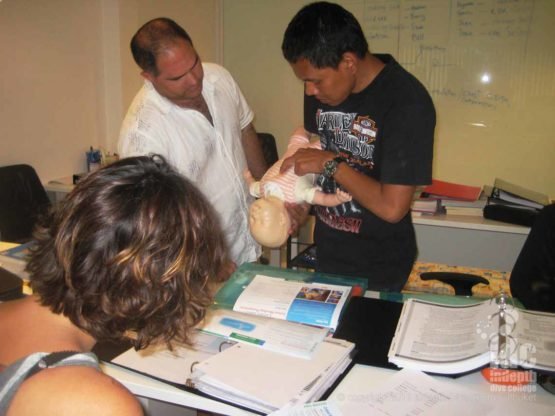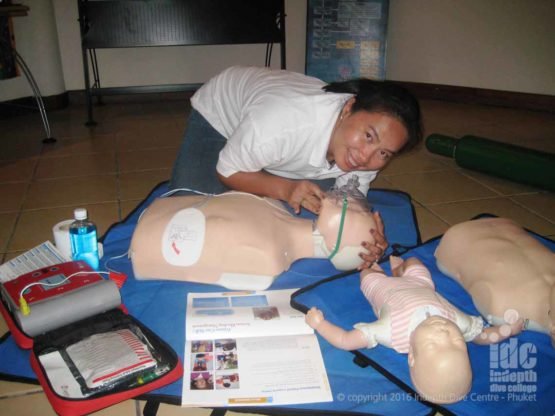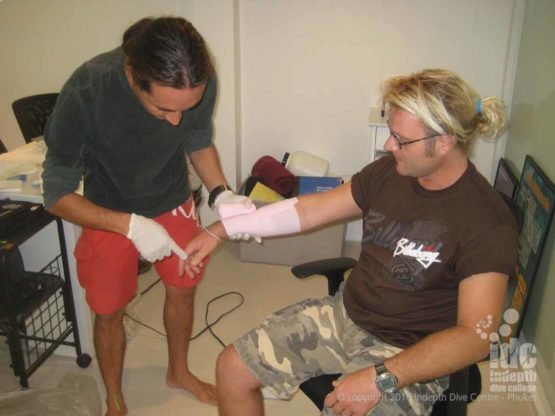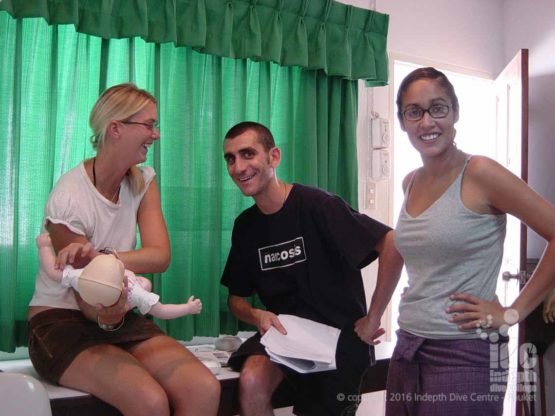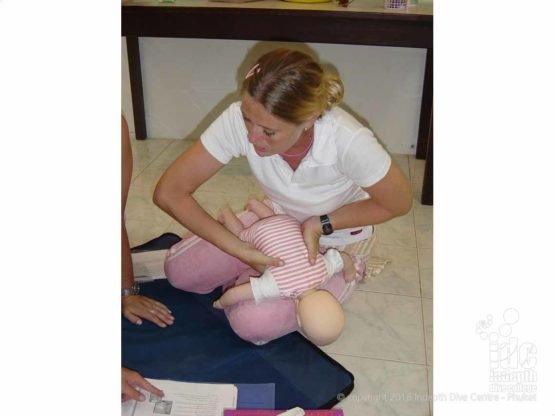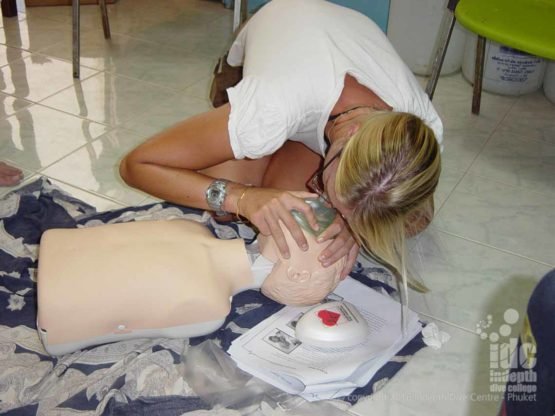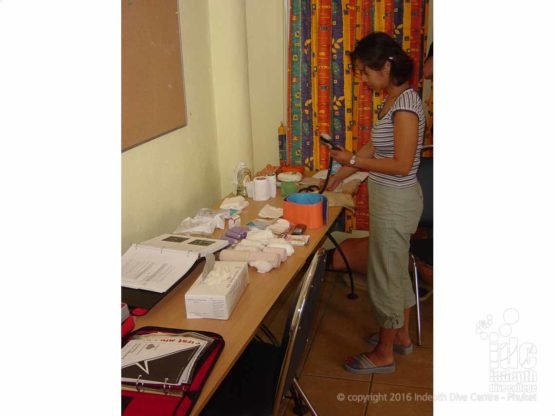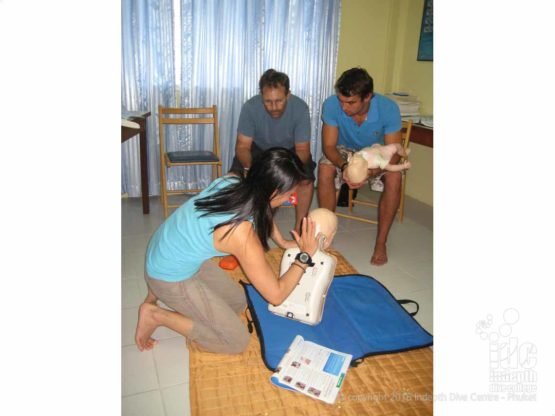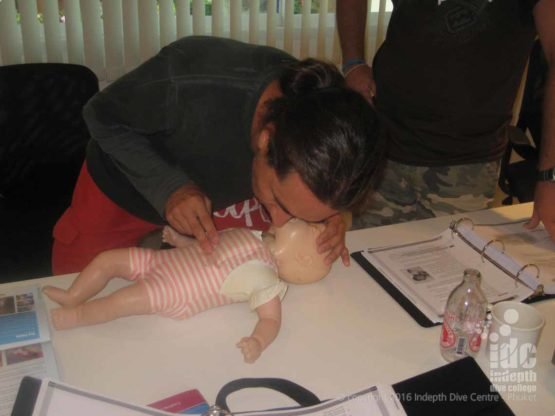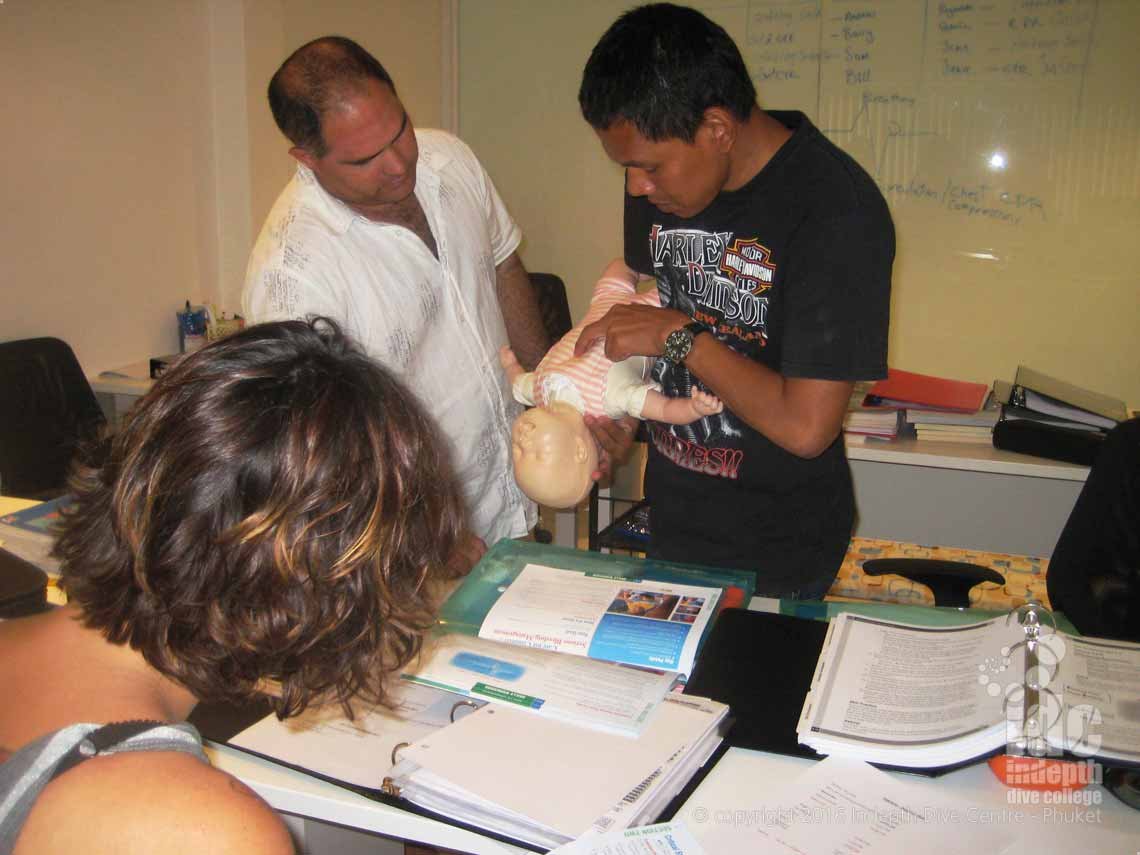
EFR Child & Baby CPR / First Aid: 5,500 THB
Do you have Children or look after kids? Do you know how to perform Child & Baby CPR / First Aid if needed? The Emergency First Response Care for Children course (EFR C4C) teaches you CPR and First Aid for treating Infants and Children.
Not only is this a simple easy to learn course, but it also teaches people emergency care skill for Infants and Children. The knowledge and skills are introduced in simple steps. Because of this you will find them easy to remember as with EFR Primary / Secondary Care. Consequently this greatly increases your retention of the information. Therefore improving your ability to use it, should you be faced with a child in need. EFR courses are based on internationally approved ILCOR Medical Guidelines. They are also open to Divers and Non-Divers alike.
Why not get trained and therefore be ready to help a baby or child in need?
- Duration: ½ - 1 Day Classroom
- Pre-requisites: None
- Minimum Age: Non
- Digital/Online Study: Coming
- Availability: Daily
- Group Size: 6:1
- Personal Tuition: 1:1 personal tuition is available
Child & Baby CPR / First Aid: is there a chance that a child in your care who needs help?
The Emergency First Response Care for Children course focuses on Child and Baby CPR / First Aid skills. The course may be conducted as a stand-alone program or taught in conjunction with Primary Secondary Care (Adults) Course. We feel this course is a MUST for people who are regularly in contact with infants and children. This includes parents, teachers, coaches, babysitters, childminders and nursery care-givers, to give just a few examples.
How to prepare for your course
The Emergency First Response Child & Baby CPR / First Aid courses starts with you reading the Care for Children manual. Additionally, you will need to watch the DVD and complete the usual Knowledge Reviews before you come to class. Then at the start of class your EFR Instructor will go through the knowledge reviews with you to make sure you are happy with what you have read.
Incidentally, when you read the manual, you might well find that you have additional questions about some of the topics. This can be especially true if you have kids of your own or you have been in an emergency before. Therefore, please do not hesitate to write these questions down and bring them to class as we will do our best to answer them for you. However, if we can’t, then we have many contacts in The Medical Profession and we can then consult with them to find the answer for you.
The Care for Children Skills are as follows:
- C4C Skill 1: Scene Assessment and also Barrier Use
- CFC Skill 2: Primary Assessment
- C4C Skill 3: Child CPR
- CFC Skill 4: Infant CPR
- Optional Skill – Automated External Defibrillator (AED) Use with Children
- C4C Skill 5: Serious Bleeding Management
- CFC Skill 6: Shock Management
- C4C Skill 7: Spinal Injury Management
- CFC Skill 8: Conscious Choking Child
- C4C Skill 9: Conscious Choking Infant
- CFC Skill 10: Injury Assessment
- C4C Skill 11: Bandaging
- CFC Skill 12: Illness Assessment
Then once you are happy with your answers to your Knowledge Reviews, it is time for the “Hands On” part of the course. And this is where the fun really starts!
Learning CPR and First Aid Skills
Having seen the Skill demonstrated on the DVD, your Instructor will now demonstrate each skill for you. Then once you are happy with the Skill Demonstration it will be your turn to practice the skills with your fellow students. This is time to relax because you can repeat the skills and exercises as many times as you like. The EFR instructional system gives you plenty of repetition of skills. Moreover, we have plenty of time to ask questions and repeat any skills you, or your Instructor would like.
How does the EFR Child & Baby CPR / First Aid course run?
The way the course works is that you will be in a group of usually 3 students. One of you will role-play the Victim, one of you the Rescuer and the last one the Coach. To perform a skill the Coach reads out the step first step, the Rescuer then does it. The coach then reads out the second step, the Rescuer does it. This continues until each step has been read out and the skill has been done correctly. Once you are happy with the skill and your EFR Instructor is happy with the skill, then the students change roles. Therefore, each student gets to be Rescuer, Victim and also Coach. Therefore by this point in the course, all the skills will have been performed a minimum of 3 times.
Then once you have completed all the skills, then it is time to see how much you have learnt and remembered. This is part of the course is what we call “The "Scenarios." However, please understand that these are not "Tests" and therefore you can't "Fail" them. The idea behind the scenarios is to see what you would do in real life. In fact this is one of the best ways for you to practice and apply the knowledge and skills you have learned during the course. We try and keep these as realistic and fun while at the same time keeping them focused and worthwhile.
Our CPR Mannequins
On our EFR courses we use Adult, Child and Infant Leardal mannequins along with proper and complete First Aid kits. This is for the best possible simulation and scenario practice as well. In addition we also provide AED Training with AED simulators. All our EFR courses use Adult, Child and Infant Leardal mannequins.
Please note: We also teach the Optional AED skill. This is done with AED Training Units with realistic AED simulators. We do this because of the increase in accessibility in AEDs globally the past 5-10 years.
How would you feel if it was YOUR Child or Baby that needed assistance?
EFR Child & Baby CPR / First Aid Course Certified!
How can you improve your knowledge and skills next?
Everyone has their own motivation for taking CPR and First Aid courses. However, if you wish to learn more about these topics, or you will be not only be working with or interacting with babies and kids but also Adults, then you might want to enroll in the Emergency First Response Primary and Secondary Care Course. This is a similar course content but for Adults, as certain skills are performed differently with adults.
The Emergency First Response Care Course (Adults) may be conducted as a stand-alone program or taught in conjunction with The Emergency First Response Care for Children course. Consequently, you would be able to take the courses together:
Primary Care / Secondary Care / Care for Children / AED as one integrated course!
PADI Scuba Divers reading this don't forget that current CPR and First Aid is a requirement for the PADI Rescue Diver Course. As such, the Emergency First Response Courses are an excellent way to meet these requirements!
Get trained in EFR Child & Baby CPR and be there to make a difference when needed!
EFR Care for Children Pricing Options
| Classroom Only | ½ - 1 Day | 5,500 THB |
| Primary Care / Secondary Care / Care for Children / AED | 6,500 THB | |
| Included: EFR course materials and certification fees as well as all necessary use of mannequins, gloves, bandages etc needed for the course. | ||
|---|---|---|




